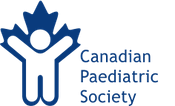Restoring school routines critical to child and youth health
Ottawa -The Canadian Paediatric Society (CPS) encourages the Ontario government to follow the evidence-based and thoughtful guidance on the 2021-22 school year issued from the Ontario COVID-19 Science Advisory Table, Sick Kids Hospital, CHEO, and others.
"Barring catastrophic circumstances, schools should remain open for in-person learning," the authors advise.
The approach aims to balance community safety with the health and development needs of children and youth. It recommends that temporary measures should consider student age, grade, and vaccination status, and that masks are not necessary in low-risk settings.
In a letter to Premier Doug Ford and Education Minister Stephen Lecce last month, the CPS urged the Ontario government to ensure that the 2021-22 school year start on time, with full-day in-person learning restored for all K-12 students, including extracurricular activities and support services.
The public health measures designed to protect Canadians from COVID-19 inadvertently harmed children and youth. Many children and youth are in serious distress and are presenting at unprecedented levels with anxiety, depression, suicidality, substance misuse, and eating disorders. Countless others are languishing, and we are gravely concerned about their well-being in the weeks, months, and indeed, years to come.
The pandemic underscored just how important in-person learning is not just to academic achievement but to all aspects of child and youth well-being. For students relying on school attendance for specialized services and supports—including nutrition programs, programs for students with disabilities (occupational therapy, physiotherapy, speech-language therapy), vocational counselling, and English language learning—online school has been particularly challenging. Students from lower socioeconomic groups and racialized children and youth have been especially vulnerable and are experiencing disproportionate learning losses with potentially lifelong implications for achievement and economic prosperity.
The CPS urges all Ministries of Education across the country to:
- Announce plans for the 2021-22 school year as soon as possible—if they haven’t already—to ensure students, families and educators can appropriately plan and prepare.
- Take all necessary measures to ensure that the school year starts on time, is delivered fully in-person, and adheres to regular (i.e., pre-pandemic) schedules and semesters.
- Significantly scale up immediate and ongoing funding and support for school- and community-based programming to meet the mental health, learning and developmental needs of all children and youth, with a particular focus on reaching those who have been most disadvantaged by school closures and other pandemic measures. These supports include allied health professionals such as occupational and physiotherapists, and speech-language pathologists.
- Provide funding and support for enhanced education recovery strategies to address learning losses and school disengagement. At minimum this could include summer programming, smaller class sizes and additional staff.
- Fully restore extracurricular activities, including sports, arts, and music.
Returning school routines to normal is a critical first step in restoring the well-being of children and youth, but it cannot be the only measure. Expanded community, educational and mental health supports for children, youth and their families are needed now. To avoid a “generational catastrophe” and ensure that children and youth can not only recover from this pandemic, but thrive in the future, they must be a priority population in pandemic recovery plans.
Media inquiries
Last updated: Jan 26, 2022
